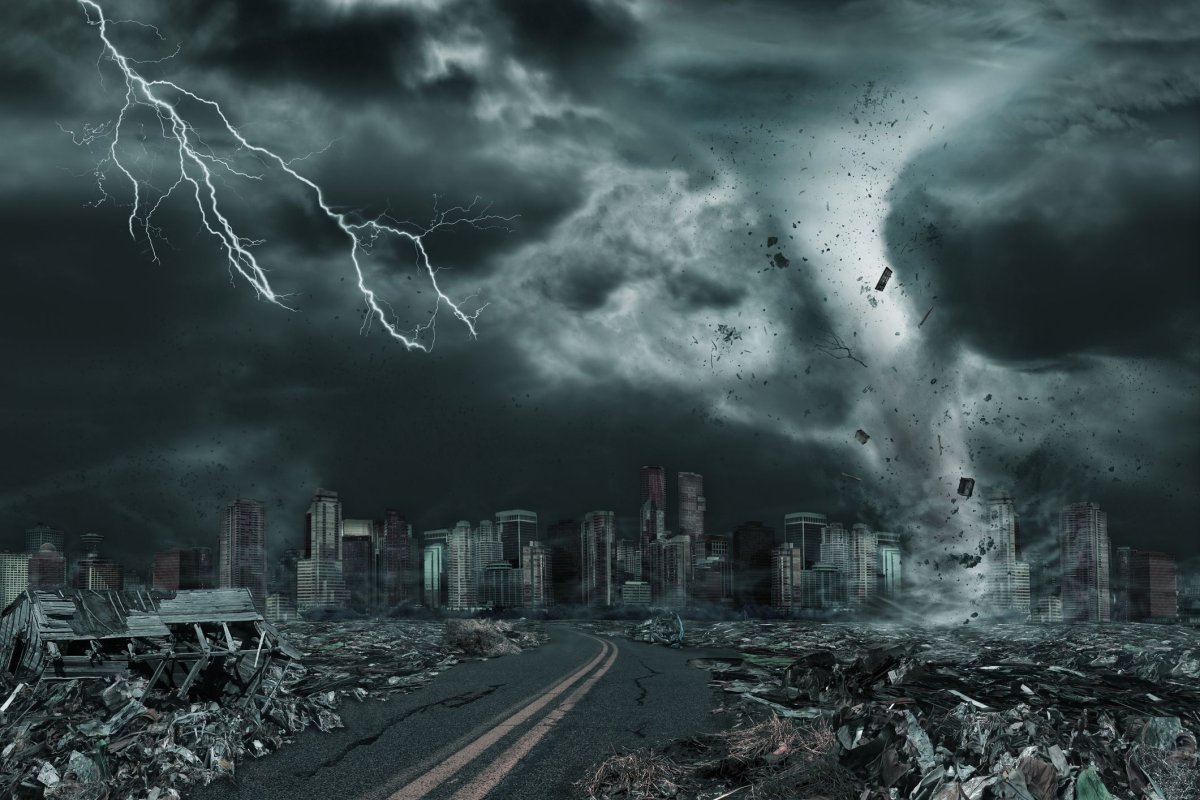This week, Professor Roy Scranton, who teaches English at the University of Notre Dame, wrote a disturbing piece for the New York Times. In it, he discussed the question of whether people ought to have children thanks to the supposed environmental catastrophe looming on the horizon.
Scranton wrote that he cried when his daughter was born "for sorrow, holding the earth's newest human and looking out the window with her at the rows of cars in the hospital parking lot, the strip mall across the street, the box stores and drive-throughs and drainage ditches and asphalt and waste fields that had once been oak groves." Scranton gloomily explained, "My partner and I had, in our selfishness, doomed our daughter to life on a dystopian planet, and I could see no way to shield her from the future."
Considering the possibility of climate change, Scranton suggested that perhaps his mistake was "having a child in the first place." He says, "If you really want to save the planet, you should die."
This sort of logic is nothing new. People fearful of the apocalypse have always suggested that avoiding having children should be a moral option. Jewish tradition suggests that when the Pharaoh threatened firstborn male children with death, Moses' mother stopped cohabiting with her husband. Moses' older sister, Miriam, told her mother that to do so was sinful: "Pharaoh's decree extends only to this world, but yours extends to this world and the world to come." Moses' mother and father then conceived Moses.
Perhaps this would pose a serious moral problem in the midst of an apocalypse. But apocalyptic thinking about climate change and human technological development is Manichean and unwarranted. Take Scranton's description of the antiseptic, synthetic world outside the hospital room: ditches and parking lots. Children are now born in a synthetic environment, complete with medical advances that mean they and their mothers will live past the childbirth, and those babies are likely to live eight decades or more. It's easy to decry strip malls. It's harder to decry antibiotics.
But more than that, the environment is not on the verge of collapse. There are more trees in the United States today than there were 100 years ago. Air quality in major metropolitan areas like Los Angeles has increased markedly over the past several decades. Scranton said he worries about mass extinction every time he reads his daughter "Polar Bear, Polar Bear, What Do You Hear?" but polar bear populations are reportedly stable or increasing.

He's most worried about climate change, though, which he says will cripple the planet and lead to human extinction. He argues that we are "shifting month by month toward the more apocalyptic end of the spectrum, and waiting even five years may see the window for saving humanity shut." But according to the Obama administration, climate change will cost somewhere between 1 percent and 4 percent of annual global GDP in 100 years.
The Intergovernmental Panel on Climate Change (IPCC) estimates that doubling of carbon dioxide could increase the global temperature somewhere between 1.5 degrees Celsius and 4.5 degrees Celsius, averaging 3 to 4 degrees Celsius. As Oren Cass points out, "At the high end of the 3-to-4 degree range, it reports the impact on ecosystems will be no worse than that of the land-use changes to which human civilization already subjects the natural world."
And as Cass further points out, all of this damage will occur to a far richer civilization than our own—given trends, global GDP will be much higher in 100 years than it is now. Human beings have a capacity for staving off the apocalypse—we've been doing it for millennia.
So should people stop having children because they fear the apocalypse? Of course not. We should have a little faith in humanity to create new solutions, not just new problems.
Don't weep over the future our babies will inhabit; be happy that they could make the future better for everyone.
Ben Shapiro is editor-in-chief of The Daily Wire and host of "The Ben Shapiro Show," available on iTunes and syndicated across America.
The views expressed in this article are the author's own.
Uncommon Knowledge
Newsweek is committed to challenging conventional wisdom and finding connections in the search for common ground.
Newsweek is committed to challenging conventional wisdom and finding connections in the search for common ground.
About the writer
To read how Newsweek uses AI as a newsroom tool, Click here.








